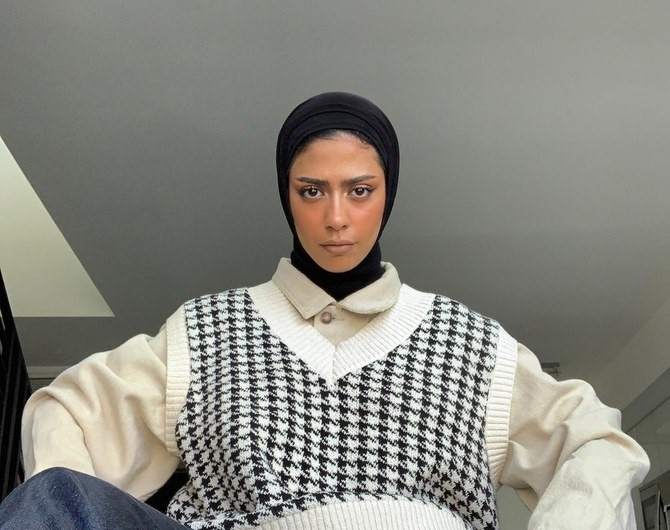São Paulo – To update your playlist for the new year, ANBA made a list with suggestions of Arab albums and artists from Jordan, Palestine, Morocco, Lebanon, among other countries in the region. Names such as Zeina, Rasha Nahas, and Postcards are part of the selection compiled with information from the Saudi newspaper Arab News.
Issam Al-Najjar has become a phenomenon among Jordanian teenagers and has gained ground internationally with his hit “Hadal Ahbek,” which went viral on Tiktok.
Canadian-Palestinian singer Nemah Hasan (pictured above), also known as Nemahsis, recently released her debut single “What If I Took It Off for You?” after sharing snippets of her vocals on social media. The song calls for a fairer treatment of women who wear the hijab.
The album “When Smoke Rises” by Toronto-based Sudanese singer Mustafa, The Poet, was listed among the best of 2021 by specialized critics on The New York Times.
In addition to her powerful voice, Moroccan singer Abir often challenges how Arab women are viewed worldwide.
Montreal-based Lebanese singer Zeina began writing music at age 16, drawing inspiration from names like Jay Z, 50 Cent, and Drake. In August, she premiered a music video for her latest single “Talk Luv.”
Palestinian singer-songwriter and multi-instrumentalist Rasha Nahas was born in Haifa and lives in Berlin. Her extraordinary talent is revealed in the first album, “Desert.” The classically trained guitarist has a soft voice and delivers high loads of emotion in her songs and performances. Overall, the debut album indicates an artist who brings immense promise, depth, and intensity.
The new album by the Beirut-based Postcards trio, “After the Fire, Before the End,” was inspired by the explosion of the Port of Beirut in August 2020. Singer Julia Sabra was with her band partner, drummer Pascal Semerdjian when the catastrophe in the Lebanese capital almost fatally injured him. The deep scars of collective trauma are evident in the album, punctuated by the resistance of survivors determined to move on.
The talent of singer Tamara Qaddoumi is even more evident in her latest EP, “Soft Glitch.” The Kuwaiti-born singer’s intriguing story – she had a Palestinian, Lebanese, and Scottish education and studied physical theater and drama – is a striking feature of the multifaceted approach to her art. The four songs on the “Soft Glitch” EP feature trip-hop, electronic music, and Qaddoumi’s hypnotic vocals.
This was a year of transformation for Palestinian-Jordanian rapper, singer, and lyricist Laith Al Husseini – also known as The Synaptik. “Al Qamar Wal Moheet” (The Moon and the Ocean, in Arabic) is an album that brings the artist’s introspection, conscience examination, and personal transformation. After finishing medical school, he moved to Ramallah and stopped using ADHD medicine. The result is a non-conformist brain-trap and hip-hop record that revolves around elements of R&B, pop, and traditional Palestinian music while bearing the unmistakable imprint of the artist’s lyrical methodology.
Curated by the “Beirut & Beyond’s Musicians Support Program,” founded to support the country’s independent music scene in light of the systemic crises the Lebanese have been facing over the past two years, the Beirut 20/21 album brings together a list of well-known and up-and-coming artists. The compilation includes tracks by Dani Shukri, Tarek Khuluki, Khaled Omran, and electronic music experimentalists Kid Fourteen (also known as Khodor Ellaik) and Liliane Chlela, among others. The anthology is a powerful reminder of the innovation and energy that still drives a community of creators through a time of crisis.
Translated by Elúsio Brasileiro




